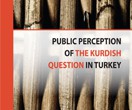SETA Washington D.C. hosted FM of the Republic of Turkey His Excellency Ahmet Davutoglu. Davutoglu delivered a keynote speech entitled ” Principles of Turkish Foreign Policy” followed by a panel discussion on “Changing Direction? Discussing Turkish Foreign Policy” featuring Taha Ozhan, Director General of SETA Foundation, Cengiz Candar, Senior Columnist for Radikal Newspaper, Prof. Bulent Aras of SETA Foundation, and Prof. Fuat Keyman of Koc University.
December 8, 2009
Grand Ballroom, Mayflower Hotel, Washington D.C.
12.15pm EST
“The Principles of Turkish Foreign Policy” by Ahmet Davutoğlu
In his speech, Minister Davutoglu first touched on the significance of principles in foreign policy. He held that foreign policy principles should be both dynamic and consistent in order to provide both flexibility but at the same time continuity. As a response to the debates whether Turkey has been changing its axis in foreign policy, Davutoglu first argued that there are only two permanent elements that the society cannot change : History and geography. He defined all other factors as variables. He dealt with the definition ‘Neo-Ottomanism” which is used to call current Turkish foreign policy vision. Rejecting this definition, he, at the same, argued that the Ottoman history plays a vital role for today’s Turkey for its identity and political status.
Davutoglu argued that what the Turkish Government has done so far for the last 6 years in its involvement to NATO as well as the EU membership clearly refute the claims that Turkey ignores the West. Davutoglu held that the main problems of Turkey-EU relations stem from the lack of political will among several governments in EU towards Turkey as well as the Union’s Cyprus policy that somewhat punishes the Turkish side but rewards the Greek side despite the willingness of the Turkish side for a peaceful settlement.
Then he mentioned three methodological principles and six operative principals of Turkish foreign policy. The methodological principles are thevision orientation, systematic framework and soft power both in political rhetoric and actions He stated that these 3 principles are very compatible with European values and transatlantic orientation.
He moved on to the 6 operative principles: the balance between security and freedom, ‘zero problem with the neighbours”, proactive peace diplomacy, compatible global relations, active involvement in all global and international issues, active involvement in all international organizations.
In the Q&A part, he was asked about his prospects towards Israeli-Palestinian talks. Davutoglu argued that Israel’s Gaza bombings were a big mistake that prevented a probable peaceful settlement. He also held that Israeli policy makers changed their minds in the last minute and thus all the settlement efforts of the parties as well as Turkish mediation went in vain.
Later, he was asked about the interaction between Turkey’s economic activities in the region and Turkish foreign policy toward the region. The minister answered the question by mentioning that the share of neighbouring countries in Turkish foreign trade has risen from 8 percent to 32 percent in the last 6 years. He also claimed that this rise also enabled Turkey to be less affected by the global economic crisis . He also touched on several trade and business agreements with the regional countries including Iraq, Egypt, Syria and Libya.
He was also asked about his position towards Iran’s eagerness on nuclear power and whether he would prefer a nuclear Iran or a nuclear Israel in the region. Turkish minister told the audience that the best scenario would be a nuclear-free region. He also mentioned Turkey’s efforts to prevent all kinds of nuclear weapons in the Middle East through diplomacy.
In this article
- Domestic Policy
- 2009
- Ahmet Davutoğlu
- at
- Cyprus
- Economic and Social Research
- Egypt
- EU Membership
- Europe
- European Union (EU)
- FM
- Gave
- Gaza
- H.E
- Iraq
- Islamic Republic of Iran
- Israel
- Keynote
- Libya
- Libyan Crisis
- Middle East
- NATO
- Nuclear weapon
- Palestine
- Panel
- SETA
- SETA Washington DC
- SPEECH
- Syria
- Syrian Civil War
- Syrian Conflict
- Syrian Crisis
- Turkish
- Turkish Foreign Policy
- Türkiye's Foreign Policy
